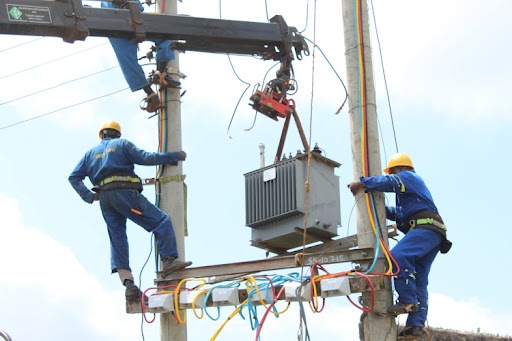At least 20 per cent of small businesses in the country have closed permanently due to economic pressure brought about by Covid-19.
A Medium and Small Enterprise Covid-19 Tracker Survey by the Central Bank of Kenya, FSD and Kenya National Bureau of Statistics shows 11 per cent closed during the 2020 lockdown period, while nine per cent closed between November 2020 and March 20.
The survey cites reduced sales and lack of operating capital as major reasons for closure.
''Only 27 per cent of businesses, which closed during the lockdown in 2020, had reopened by March 2021,'' notes the survey.
The data from the first two rounds of the FinAccess Covid-19 tracker survey indicate that firms have suffered from reduced demand across the economy, compromising their revenue and undermining their resilience
A large proportion of businesses depleted their savings during the lockdown period.
By March, only 37 per cent of businesses reported having some savings compared to 60 per cent during the pre-Covid-19 period, implying increased risks to business resilience.
Depleted resilience has rebounded on business households as well, with food insecurity rising from 14 per cent to 61 per cent during the 2020 lockdown.
About 45 percent of businesses had loans outstanding in November 2020, mainly from mobile banks and Chamas (informal banking groups).
A majority of businesses did not benefit from the loan restructuring since they do not rely on bank loans. Only two percent reported restructuring their loans.
By March 2021, there was a significant decline in digital loans, with only 36 per cent of borrowers having mobile banking loans, down from 45 per cent in November 2020, while two per cent of respondents had a digital app loan down from 10 per cent during the pre-Covid-19 period.
Most business owners received support from friends and family members, followed by Saccos.
The survey shows 54 per cent were supported by family members, Sacco19 per cent, Chamas two per cent and two per cent from commercial banks.
About 73 per cent of businesses indicated that they did not receive any direct government support.
This may be due to the fact that these businesses are too micro and informal to benefit from government support, which mainly targeted more formal and relatively large businesses
On a positive note, 30 per cent of businesses that had survived the lockdown, have reported their revenues at or above pre-Covid levels by March 2021.
At the same time, four per cent of businesses are earning less than half of pre-covid revenues, highlighting growing divergence within this segment; resilient businesses are continuing to prosper, but the majority struggling to survive.
There was a marked increase in digital transactions, with 58 per cent of businesses that accepted mobile money payments prior to covid-19, reporting a sharp increase in digital usage during the lockdown.
However, this declined to 26 per cent by March 2021, partly reflecting a reversal in mobile money waivers.
Youth-owned businesses relied more on digital platforms to reach their customers.
Business optimism improved in November 2020, with 55 per cent of the respondents anticipating a better economic outlook in 2021.









